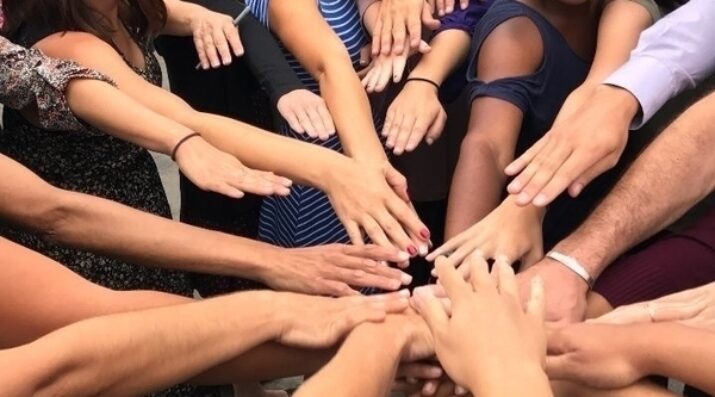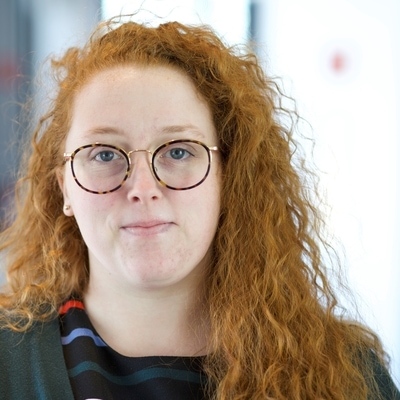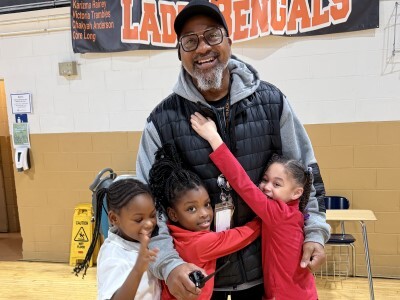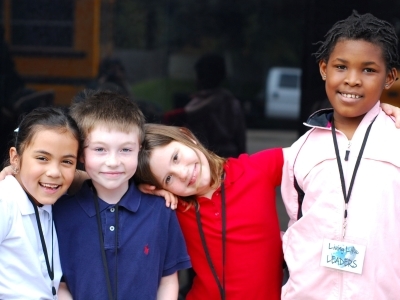Boston Public Schools’ Externships: A True Team Effort
Topics

When educators design and create new schools, and live next gen learning themselves, they take the lead in growing next gen learning across the nation. Other educators don’t simply follow and adopt; next gen learning depends on personal and community agency—the will to own the change, fueled by the desire to learn from and with others. Networks and policy play important roles in enabling grassroots approaches to change.
Community partnerships and industry connections offer many benefits for teachers and students but require nurturing and development to succeed.
This summer, Boston Public Schools offers its third year of an Externship program in its current iteration. Each winter and summer, BoSTEM/United Way and the Boston Public Schools Office of Expanded Learning Opportunities host externships for teachers to give them the chance to experience a 21st-century workplace. Generally, educators find two key takeaways from the program: 1) industry connections to leverage in support of students; 2) insight into the way industry professionals approach problems and team projects. Participants represent educators of all grade levels, content areas, or role within a school.
A comprehensive team plans the Externships each year. The group includes members from the Northeastern University Graduate School of Education and NExT, UnitedWay BoSTEM, the Boston Opportunity Agenda, Autodesk, and the Boston Public Schools. This fall, the team came together to apply for a National Science Foundation (NSF) grant with the hopes of funding the Externship program for the next three years.
Our grant application, “Developing Capacity for STEM Teaching and Learning: Preparing Students for the Future of Work through Design Thinking and Radical Collaboration” is largely based in design, development, and discovery research. Now, after several successful years, the team felt prepared to seek outside funding to support program expansion and data collection. The grant would also supply continued funding for teacher stipends. To date, 50 teachers participated, received compensation, and actively seek more externship opportunities.
Summer 2020 was the first year that Northeastern University was involved in the Externship program, but not the first year that our organizations have crossed paths. The NExT Network of the Northeastern College of Professional Studies offers “a collaborative community for the experiential learning movement.” They’re strong supporters of innovative education and have been working in both the BPS and BoSTEM orbit for years.
BPS has been lucky enough to have strong partnerships throughout the development of the current Externship program. Each group comes to the program with a different perspective but similar goals. When we bring a new partner onto the planning team, we’ll always take the time to discuss everyone’s goals. Some groups specifically want to work with BPS, some look to reach out to the future workforce and collaborate with them through high school and their postsecondary careers, and others look to make an impact in the classroom.
Once the group was clear on each other’s goals, we were able to come up with agreed upon next steps that would help move the program forward in a way that still prioritized student and teacher achievement while also addressing the team’s goals. It has also been a great help to have members of the grant-writing team and larger working group represent the different groups of stakeholders (BPS, community partners, higher education, corporate partners, etc.). This helps ensure universal success of the program.
Since shifting to a virtual program this year, we’ve been using a few key practices:
- We didn’t fight it. Once the group saw the likelihood of a virtual summer lurking closer and closer, we made the decision earlier than most to shift to a fully virtual program. We opted to use the time to plan one virtual program rather than drafting all options and waiting for a decision from the district/city.
- We leaned on our initial planning strategy of discussing goals for the program as a whole, addressing how each of those goals would impact each stakeholder, and designing a virtual program accordingly. For example, a key goal of our two week externship was that teachers created a project-based learning (PBL) unit or lesson plan. We discussed, as a group, how each member of the working group could provide support and moved on from there.
- We asked for help. We knew that by the time externships started, teachers and school administrators would have been teaching virtually for close to six months. We made sure to check in with them to get the temperature of how they were doing and how their students were feeling so that we didn’t design anything that they didn’t have the capacity to handle. The teachers and school administrators also had great feedback as to what was going well and what challenges they were facing during virtual learning; we incorporated this feedback into the program design.
One of the other benefits of the team that worked to put the grant application together is that we work on projects together regularly. We didn’t have to spend much time getting to know each other. While we wait on the NSF decision, we’ll continue working on awarding Northeastern University graduate credit to externs and collaborating on a variety of STEM projects with UnitedWay. We’re ready and excited to build out the program in a way that’s sustainable, equitable, and accessible to all BPS educators.
Photo at top courtesy of Thrive Public Schools.




